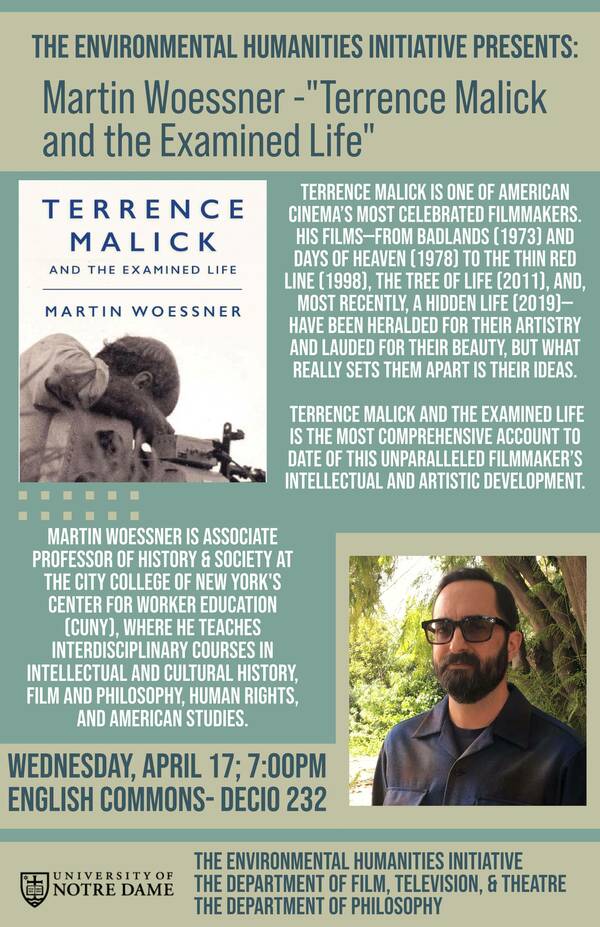
Martin Woessner is Associate Professor of History & Society at the City College of New York's Center for Worker Education (CUNY), where he teaches interdisciplinary courses in intellectual and cultural history, film and philosophy, human rights, and American studies. In addition to Terrence Malick and the Examined Life (University of Pennsylvania Press, 2024), he is the author of Heidegger in America (Cambridge University Press, 2011) and writes frequently for the Los Angeles Review of Books about subjects including the philosophical legacies of Richard Rorty and Jürgen Habermas, the novels of J. M. Coetzee, and the films of Paul Thomas Anderson.
Description:
Terrence Malick is one of American cinema’s most celebrated filmmakers. His films—from Badlands (1973) and Days of Heaven (1978) to The Thin Red Line (1998), The Tree of Life (2011), and, most recently, A Hidden Life (2019)—have been heralded for their artistry and lauded for their beauty, but what really sets them apart is their ideas. Terrence Malick and the Examined Life is the most comprehensive account to date of this unparalleled filmmaker’s intellectual and artistic development.
Utilizing newly available archival sources to offer original interpretations of his canonical films, Martin Woessner illuminates Malick’s early education in philosophy at Harvard and Oxford as well as his cinematic apprenticeship at the American Film Institute to show how a young student searching for personal meaning became a famous director of Hollywood films. Woessner’s book presents a rich, interdisciplinary exploration of the many texts, thinkers, and traditions that made this transformation possible—from the novels of Hamlin Garland, James Jones, and Walker Percy to the philosophies of Stanley Cavell, Martin Heidegger, and Søren Kierkegaard to road movies, Hollywood Westerns, and the comedies of Jean Renoir. Situating Malick’s filmmaking within recent intellectual and cultural history, Woessner highlights its lasting contributions to both American cinema and the life of the mind.
Terrence Malick and the Examined Life suggests it is time for philosophy to be viewed not merely as an academic subject, overseen by experts, but also as a way of life, open to each and every moviegoer.
Originally published at environmentalhumanities.nd.edu.